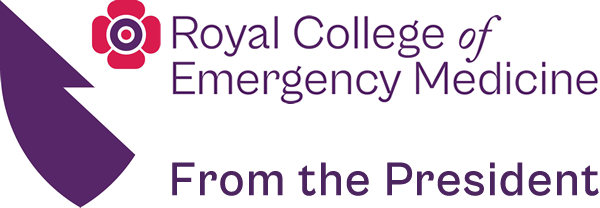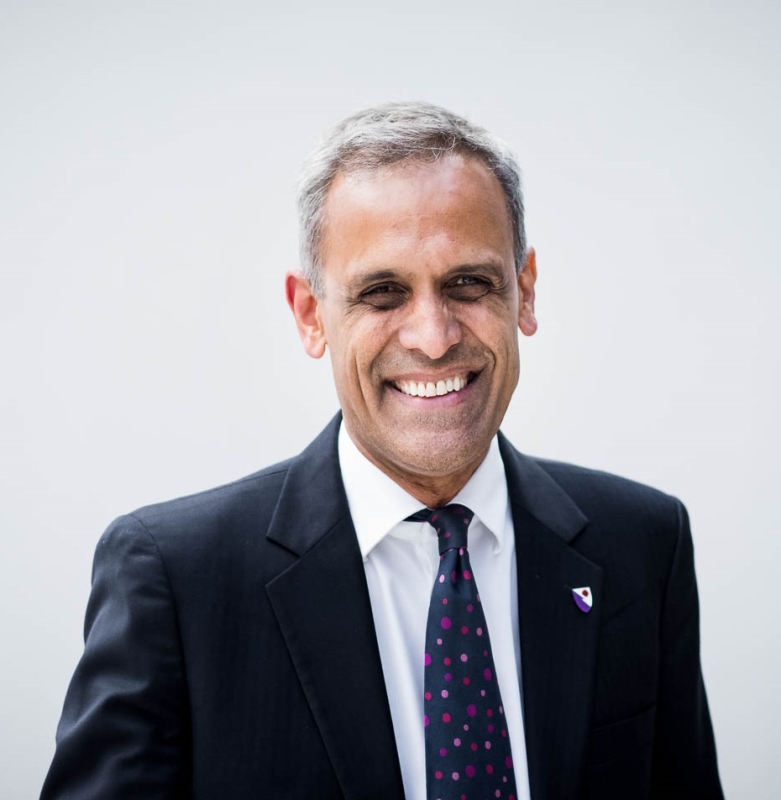 The joy of daffodils appearing, lightens the heart and the spirit! Spring is here and no doubt it gives a certain sense of pleasure that you can put your ‘seasonal affective disorder’ lamp away for another year.
The joy of daffodils appearing, lightens the heart and the spirit! Spring is here and no doubt it gives a certain sense of pleasure that you can put your ‘seasonal affective disorder’ lamp away for another year.
Lots of good things happening for RCEM too with regional study days and the impending Annual RCEM CPD Conference in Cardiff next month. A really excellent line up, with all previous events having been sold out in recent years so get your tickets now. Lots of other excellent study days have already occurred this year on ambulatory emergency care, public health EM and managing frail older people in ED. Soon to come will be an innovative one entitled ‘Flourishing in EM’ which I am especially keen on and would recommend to you.
In the midst of all this, I have written extensively in the last two months of the challenges we have faced this last winter period on a backdrop of chronic underfunding and wider system failure. The remarkable efforts of our teams to maintain safety for our patients and care for our teams has been quite humbling.
Left of field challenges such as cold weather (!), norovirus or even a more virulent flu virus have seemingly been too much for the ‘very best laid plans’ and yet other ‘innovative’ schemes such as more acute and community beds have been left behind. We have however continued to be vociferous both in the media and behind closed doors on the issues that matter to us and our patients. Indeed in January we achieved the highest tally of media presence ever and certainly much more than any other Royal College. That in itself is a testament to the hard work of our RCEM policy team that has 3 employees (the RCP has 30!) and members of the Executive who have all contributed so well in the newsprint and on the TV. We continue to push hard on many fronts and I hope you feel that we represent you well in fighting the good fight. We will of course keep you updated and are already pushing hard to ensure valuable lessons are learnt.
Of course, none of us can have been failed to have been moved by the recent case of Hadiza Bawa-Garba and the actions of the Court as well as the GMC. If you have not read about it, I urge you to do so. There is a lot of very thoughtful reflection by many independent commentators on the complexities of the case. For many of us, there is a clear feeling of injustice and the emotion that has resulted has destroyed much trust and goodwill with the GMC that will need to be rebuilt. To many of us as clinicians, we would regard the situation she faced as being very common to our own clinical practice. We manage and absorb risk to keep our departments running and do our very best for the patients that continue to pour through the doors. None of that has of course changed. What is clear though is that case law with regard to gross negligence manslaughter puts clinicians working in very imperfect systems (most EDs in the UK & Ireland) in between a rock and hard place. On the one hand, we strive with our duty of candour to create an open learning culture to help learn from mistakes that will occur because we are human. On the other hand, such exposure to high risk is not seen as a significant mitigating factor either in Court or by the GMC it seems. Indeed this has been the case for a long time but has been brought into sharper focus by the case of Dr Bawa-Garba. So far, I have had meetings to discuss safety with our health regulator in England the CQC, as well as NHS Improvement and will also be meeting the GMC Chief Executive and Chair in the very near future. We hope to provide further guidance on this important issue in the near future. In the meantime I encourage you to read our statement on RCEM website and also that of the Academy of Medical Royal Colleges with whom we are working on this. Please also read the guidance of the Academy on reflection.
In summary, it is probably worth reinforcing three other things that I have previously said. Firstly, we know we live and work in complex environments where the risk of being able to do our job well is heightened by failures in the wider system and an NHS which is ill equipped to deliver standardised quality care as we would wish. Secondly, as emergency physicians and with our nursing colleagues we are all human. Human beings make mistakes and should be allowed to reflect openly and be honest so that we can make healthcare safer for the future. Thirdly, as seniors we should rightly support our trainees and our team and have their back. Much of what occurred in the case of Bawa-Garba has touched our souls because many of us feel a gross sense of injustice that she was failed in all those of elements.
In the midst of all that, think positive thoughts. Look at the daffodils and hopefully that will energise you for that next clinical shift – mine is a Monday night shift tonight at the MTC, probably requires a field of them!
Have a good month.
Dr Taj Hassan
President, RCEM


